Juvenile Hall youth learn about love, loss and second chances training dogs for adoption
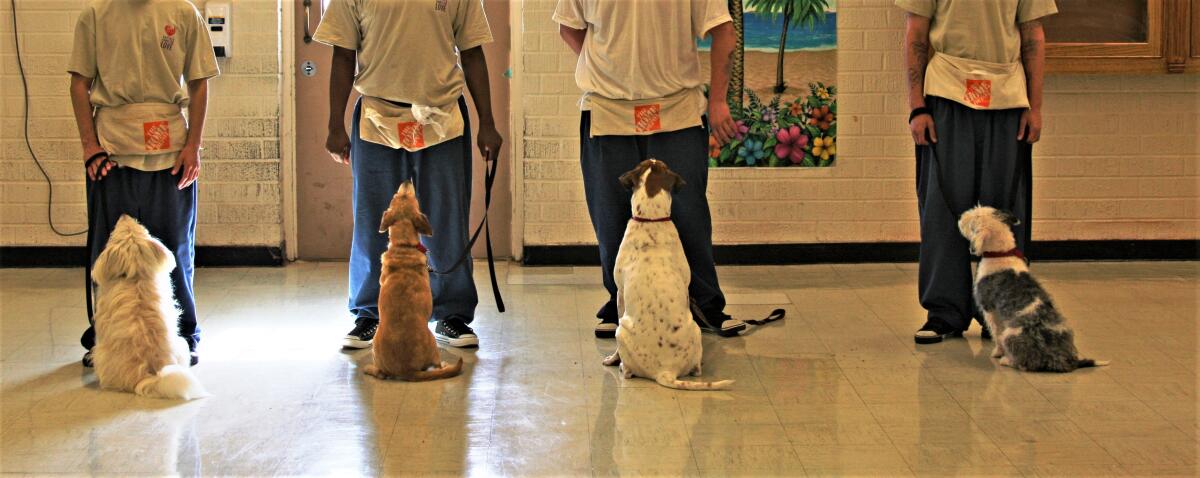
- Share via
Anyone who’s loved a rescue dog knows a second chance can mean the difference between happiness and peril or life and death. That’s just as true for humans, who can fall or be lifted by the hand of another.
For the last 15 years, local nonprofit Cell Dogs has connected unhoused canines in need of love and obedience training with incarcerated adults and youth tasked with preparing them for new lives with loving families.
In a small Jan. 17 graduation ceremony at the Orange County Probation Department’s Juvenile Hall, a handful of wards held fast to the leashes of three pooches — Polly, Rocky and Wiggles — who’d been living with them for the previous 2½ months.
The youths were responsible for training the dogs, rescued from dire straits and often of unknown origin, and for providing the socialization and discipline necessary for their transition to a home environment.
Janette Thomas, a North Tustin retiree and dog lover, founded the organization in 2008 to help dogs that might not fare well in traditional shelters or adoption environments, while creating a sense of purpose in the lives of inmates and youth in need of their own form of rehabilitation.
Aside from providing trainers with life and career skills, she said, the program lets participants experience the feeling of doing something good for another.
“They’re taking a dog that knows nothing, then they teach it a list of 20-plus commands,” she explained Thursday. “The dog does it because it loves them (and they’re getting treats) and because a kid is being kind to them.”
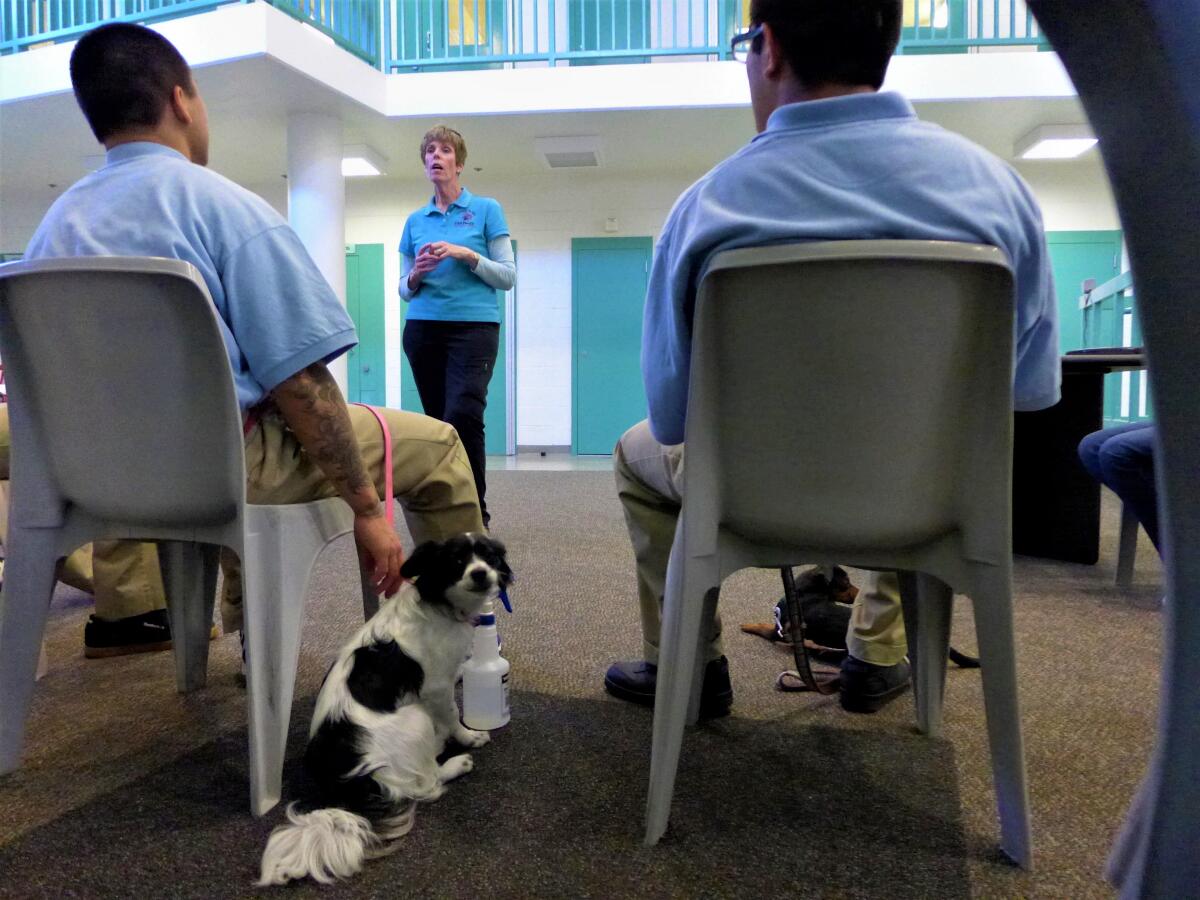
Juvenile Hall director Sanford Rose attended the Jan. 17 graduation and said trainers were full of emotions as they handed off their four-legged charges to their new families.
“It’s just an amazing program,” he said. “It really is teaching these young men and women responsibility.”
After a four-week crash course on canine care and behavior, the trainers guide dogs through eight to 10 weeks of weekly training sessions. Each trainee will have three or four caretakers, so it doesn’t become too attached to one individual.
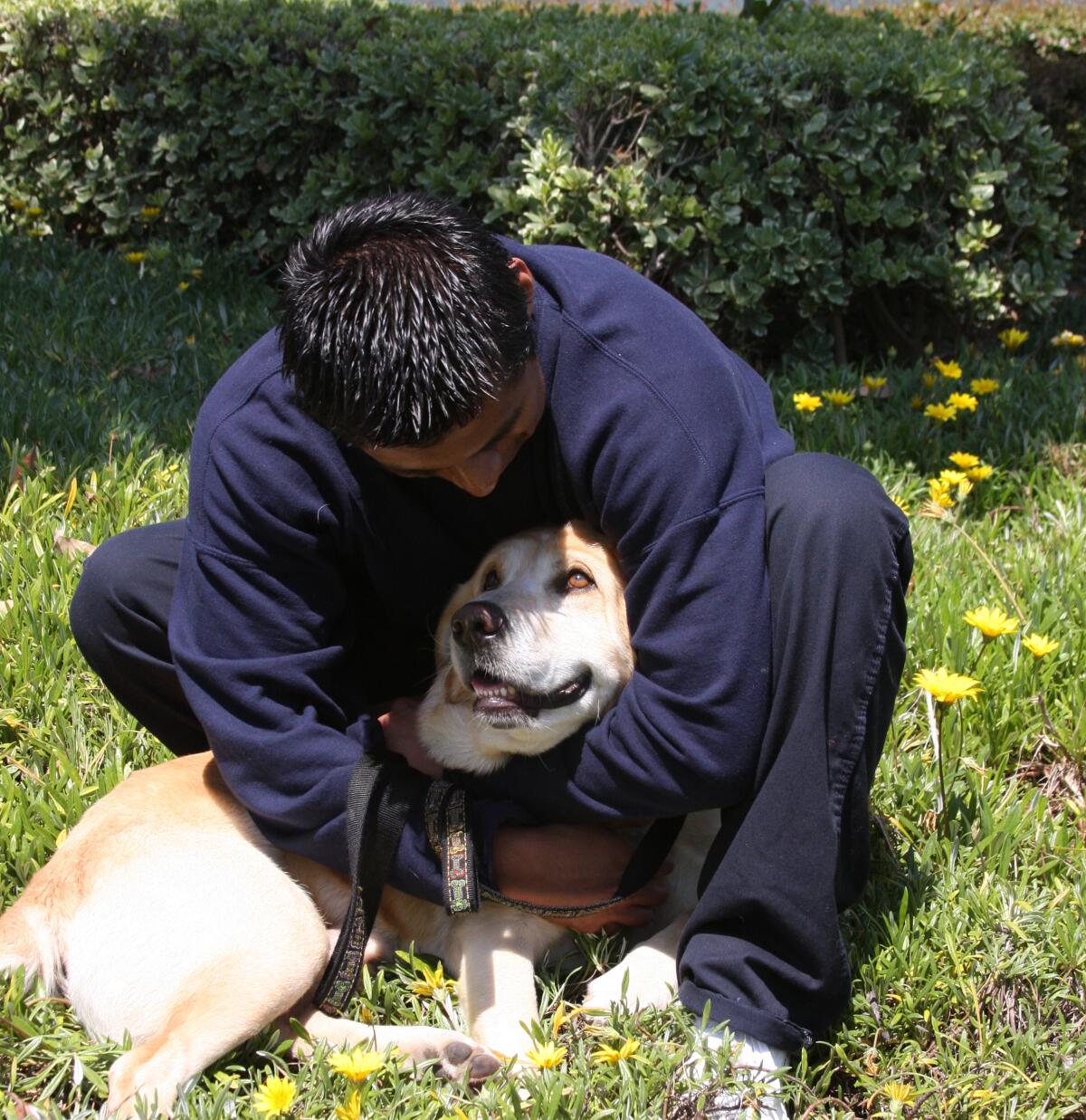
Aside from teaching basic commands — sit, stay, heel — the sessions teach trainers to use positive reinforcement to mitigate bad behavior and read body language to determine the animals’ needs.
The experience is educational and could potentially set trainers on a path toward a career in training or animal handling. But it also exposes participants to some larger, perhaps less tangible, benefits, according to Rose.
“A lot of times these teenagers we have, they have never been shown unconditional love and acceptance and have probably never given unconditional love,” he said. “And with the dogs, it just happens as part of the process.
“They’re learning when they put forth a positive effort, they can change something.”
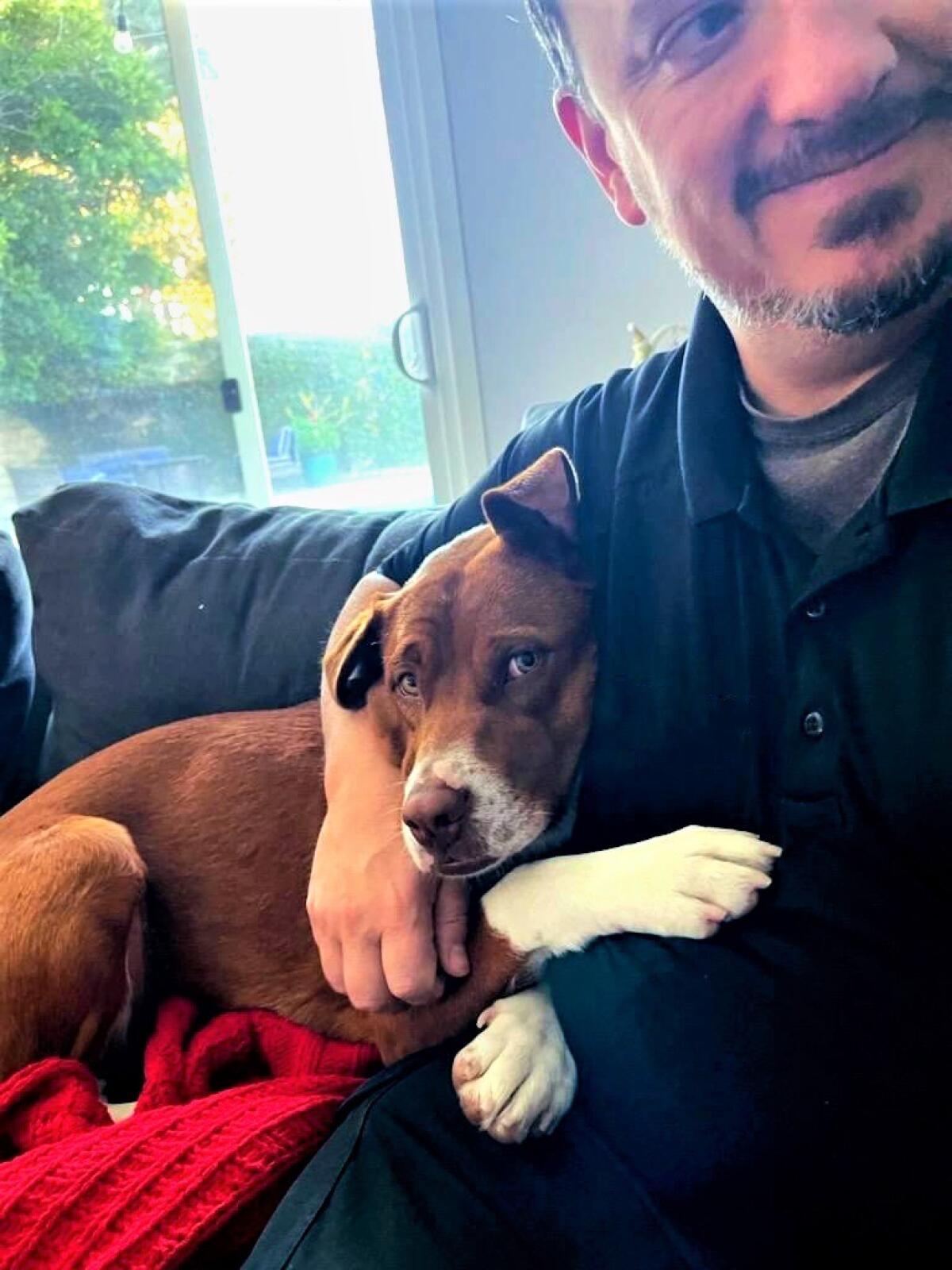
For as much as Cell Dogs has meant to the hundreds of trainers who’ve helped care for more than 400 canines in a 15-year period, its efforts have made an equal impact on the families who take in dogs that may have otherwise faced an uncertain destiny.
Some graduates continue training and become service dogs. In other cases, graduates end up in the homes of the corrections officers who supervise the program. Out of 64 canines trained at the facility in Orange, 13 have so far gone to employees. Polly, a Novia Scotia Duck Tolling Retriever mix and Jan. 17 grad, went home with a probation staff member who attended the ceremony.
Rocky, a French bulldog-Cocker spaniel-poodle mix, was adopted by a couple from Redondo Beach.
Wiggles, a miniature Doberman Pinscher mix rescued from a hoarding situation in Arizona, was taken in by Mary and John O’Connor. The San Diego couple adopted a lab-mix named Frosty from Cell Dogs in 2009 and had her for several years before she passed.
When they were considering another pet, Cell Dogs was an appealing option because of its mission and because families meet potential adoptees before completing the program and are carefully matched so there are no surprises down the road.
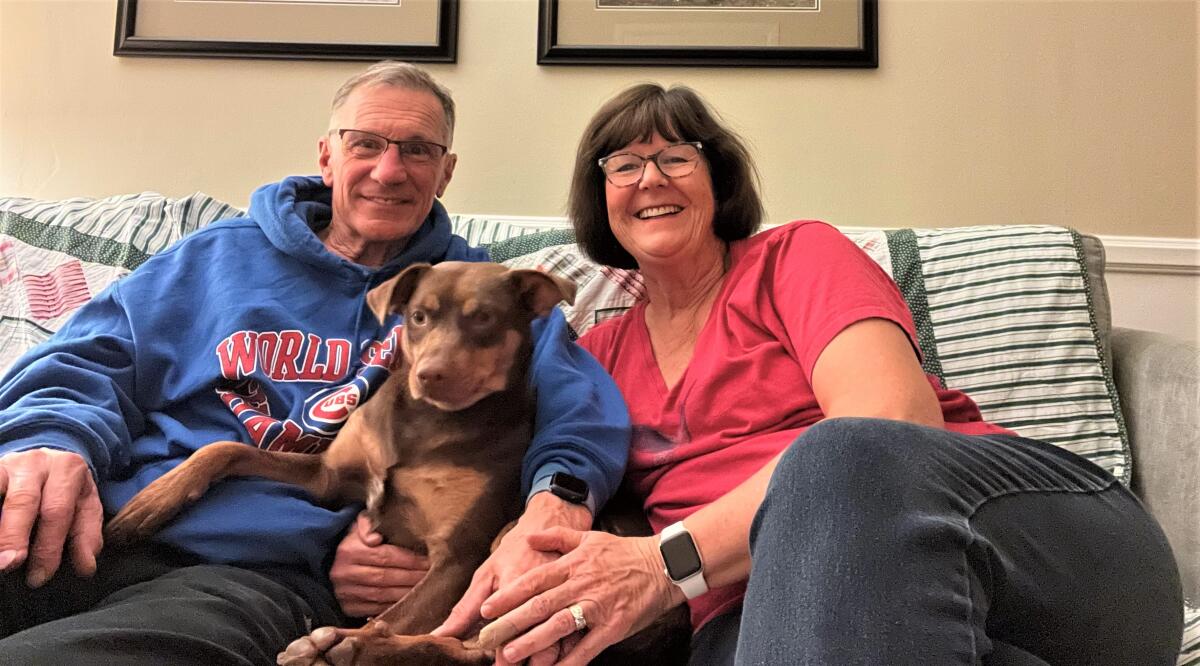
“When I saw Wiggles, I was like, ‘Right there, that’s the dog,’” said Mary O’Connor, who attended the juvenile hall graduation.
The ceremony was emotional, as families affixed new leashes to collars and trainers, in the unclipping of their own leashes, learned part of love is letting go.
One youth gave the O’Connors his T-shirt, so Wiggles would have a familiar scent in her new environment. She cuddled up on it the whole ride home.
“You’re not only saving a dog, but you’re helping to save the inmates who trained them,” Mary O’Connor said. “You’re giving them a second chance.”

All the latest on Orange County from Orange County.
Get our free TimesOC newsletter.
You may occasionally receive promotional content from the Daily Pilot.




